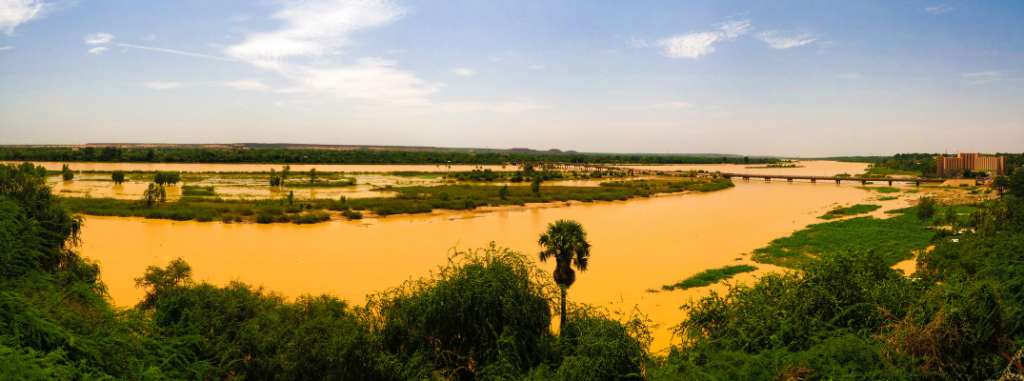The world’s waters are drying up, including Africa’s, thanks in part to climate change. Climate change is causing water scarcity around the world through rainfall variability, droughts and desertification. Research has predicted that the variability will cause some African sub-regions to experience wet periods and others to face serious droughts. The Intergovernmental Panel on Climate (IPCC) warned in 2007 that climate change and variability could impose pressures on water availability, water accessibility and water demand in Africa.
The South African city of Cape Town is already experiencing serious water scarcity. The city is approaching a Day Zero when water availability will reach its lowest. Now, water scarcity is not a Cape Town Phenomenon. Cities around the world in South America, North America, Asia and Australia are also facing similar water shortages given overdevelopment, population and climate change, according to National Geographic. Many of these cities have had to cut down on water use when they realised where their water challenge is headed.
Implications of a Water Scarcity Africa
The farmer-herder crisis in Nigeria that has claimed about 5,000 lives between 2011 and 2018 has been linked to water scarcity in the Lake Chad region. A great body of literature on the environment says water scarcity is linked to conflicts, for example, Hendrix and Salehyan’s research. In the past, herders were restricted to the desert until the twentieth century (during the West African Sahelian drought and famine of 1968-1974) when they began to migrate and settle in different zones. The pressure on natural resources that this created led to conflicts between farmers and herdsmen. United Nation’s ReliefWeb documents different regions of the world where violent conflicts have resulted due to water scarcity: from Turkey, Syrian and Iraq to Afghanistan and Iran, water shortage is serving conflicts around the world.
Water scarcity has the potential of affecting food production since 95% of sub-Saharan African agriculture is rain-fed. Through droughts and dry spells, agricultural productivity will decline meaning that food insecurity will rise as there is no water to produce food for the growing population. Women and children are at the centre of this challenge: they face security challenges, waste productive time and miss out on development travelling long distances to fetch water. Another risk of a potential Africa water dry up is poor sanitation. When access to water for good hygiene is threatened, diseases outbreak is only around the corner.

What Can We Do About It?
The world may have found itself in this challenge of water scarcity due to one thing: excessiveness in water use. We use water like it can never finish. Using water should not be about whether ‘I pay tax’ or ‘I don’t have a water shortage problem’. Staying long under the shower may not be a sustainable lifestyle option in this 21st Century. Water treatment plants must be revivified to full functioning and equity in water distribution must be at play by making heavy industrial users pay for their water footprint. Leaks and faults in municipal and home pipes must be attended to without delays in our cities. Innovations that drive efficiency in water use is important. The noted gaps in technical skills need to be bridged to solve Africa’s water challenges. Universities across Africa must now see water as a priority and therefore design curricula that train professionals to solve our water challenges.
Since the United Nations FAO says there is enough water to meet food production demand globally, one way to reduce water footprint/stress could be for a country to import some of its products and services that require water to produce so that water is available to meet basic needs. As of now, agriculture is responsible for 70% of global water consumption, but we can cut this down. Supplemental irrigation, drip irrigation and rainwater harvesting are technologies available to adapt to climate change and maintain/increase food production levels. With drip irrigation, Israel is using 75% less water than other types of technologies. Melbourne has cut down half its water use from 1997 through water recycling and other government policies.
As an individual, you can reduce your water footprint by “installing water saving toilets, applying water-saving showerhead, closing the tap while brushing the teeth and using less water in the garden” and kitchen. To know more about how you can reduce your water footprint, check out these options.
Summary
It is worrying to think that drilling to tap from underground water is the solution to our water problem. If we are having to go down so deep to get water now, what are we leaving for the generations to come? Yet the United Nations says that over 2 billion people live in countries with excess water stress. This means that they are living in countries that use more water than their natural ecosystem can regenerate and are prone to future water scarcity (and consequently conflicts). Right now, and especially as water specialists meet in Stockholm for World Water Week in August, top on our table should be how to sustainably manage the water we have so we don’t leave the world dry for those coming behind us. A world without water – no doubt about this – is a world in crisis.

